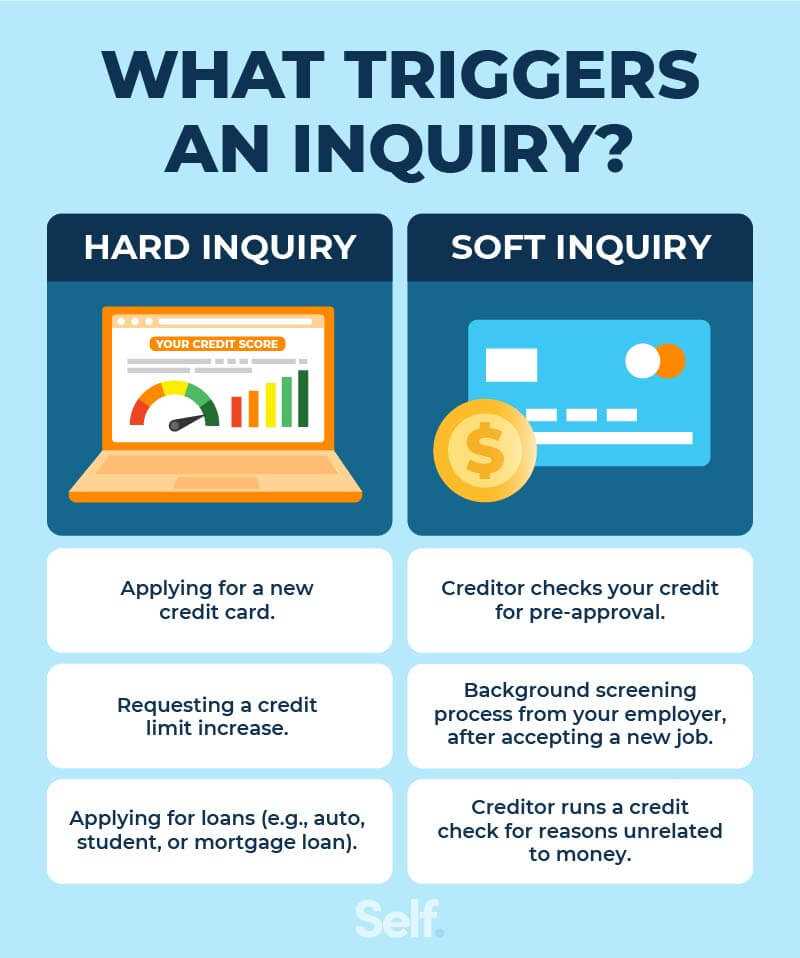What is a Hard Inquiry?

During a hard inquiry, the lender or creditor will review your credit history, including your payment history, credit utilization, and any previous credit inquiries. They use this information to assess your creditworthiness and determine whether to approve your application.
How does it work?

When you apply for credit, the lender or creditor will request a copy of your credit report from one or more credit bureaus. This request is recorded on your credit report as a hard inquiry. Each hard inquiry can have a temporary negative impact on your credit score, typically causing it to decrease by a few points.
Multiple hard inquiries within a short period of time can have a more significant negative impact on your credit score. This is because it may indicate to lenders that you are actively seeking credit and could potentially be taking on too much debt.
Impact on Credit Score

As mentioned earlier, hard inquiries can have a temporary negative impact on your credit score. However, the impact is usually minor and short-lived. In most cases, your credit score will recover within a few months as long as you continue to make timely payments and maintain a low credit utilization ratio.
It’s worth noting that the impact of hard inquiries on your credit score may vary depending on your overall credit history and the specific scoring model used by the credit bureau. Generally, if you have a strong credit history and only a few hard inquiries, the impact on your credit score will be minimal.
Definition, How It Works, and Impact on Credit Score

When you apply for credit, the lender wants to assess the risk of lending you money. They do this by reviewing your credit history and credit score. A hard inquiry allows them to see your complete credit report, including your payment history, outstanding debts, and any other relevant information.
During a hard inquiry, the lender requests your credit report from one or more credit bureaus, such as Experian, Equifax, or TransUnion. This request is recorded on your credit file and may have a temporary negative impact on your credit score.
How It Works
When a lender performs a hard inquiry, they are essentially checking your creditworthiness. They want to determine if you are a responsible borrower who is likely to repay the loan on time. To do this, they review your credit report and credit score.
Once the lender receives your credit report, they will analyze it to assess your creditworthiness. They will look at factors such as your payment history, outstanding debts, length of credit history, and any negative marks, such as late payments or bankruptcies.
Impact on Credit Score
A hard inquiry can have a temporary negative impact on your credit score. This is because it indicates that you have applied for new credit, which can be seen as a potential risk by other lenders.
The impact of a hard inquiry on your credit score is typically small and short-lived. It may cause your score to drop by a few points, but this decrease is usually temporary. Over time, as you continue to make on-time payments and manage your credit responsibly, the impact of the hard inquiry will diminish.

Emily Bibb simplifies finance through bestselling books and articles, bridging complex concepts for everyday understanding. Engaging audiences via social media, she shares insights for financial success. Active in seminars and philanthropy, Bibb aims to create a more financially informed society, driven by her passion for empowering others.
